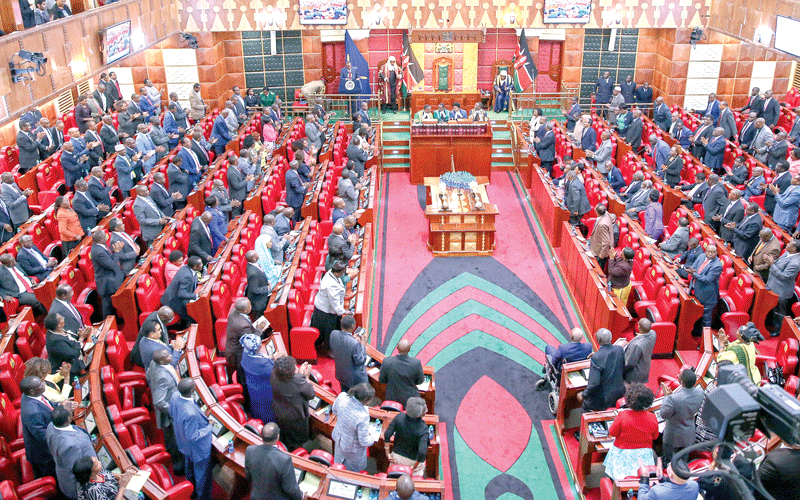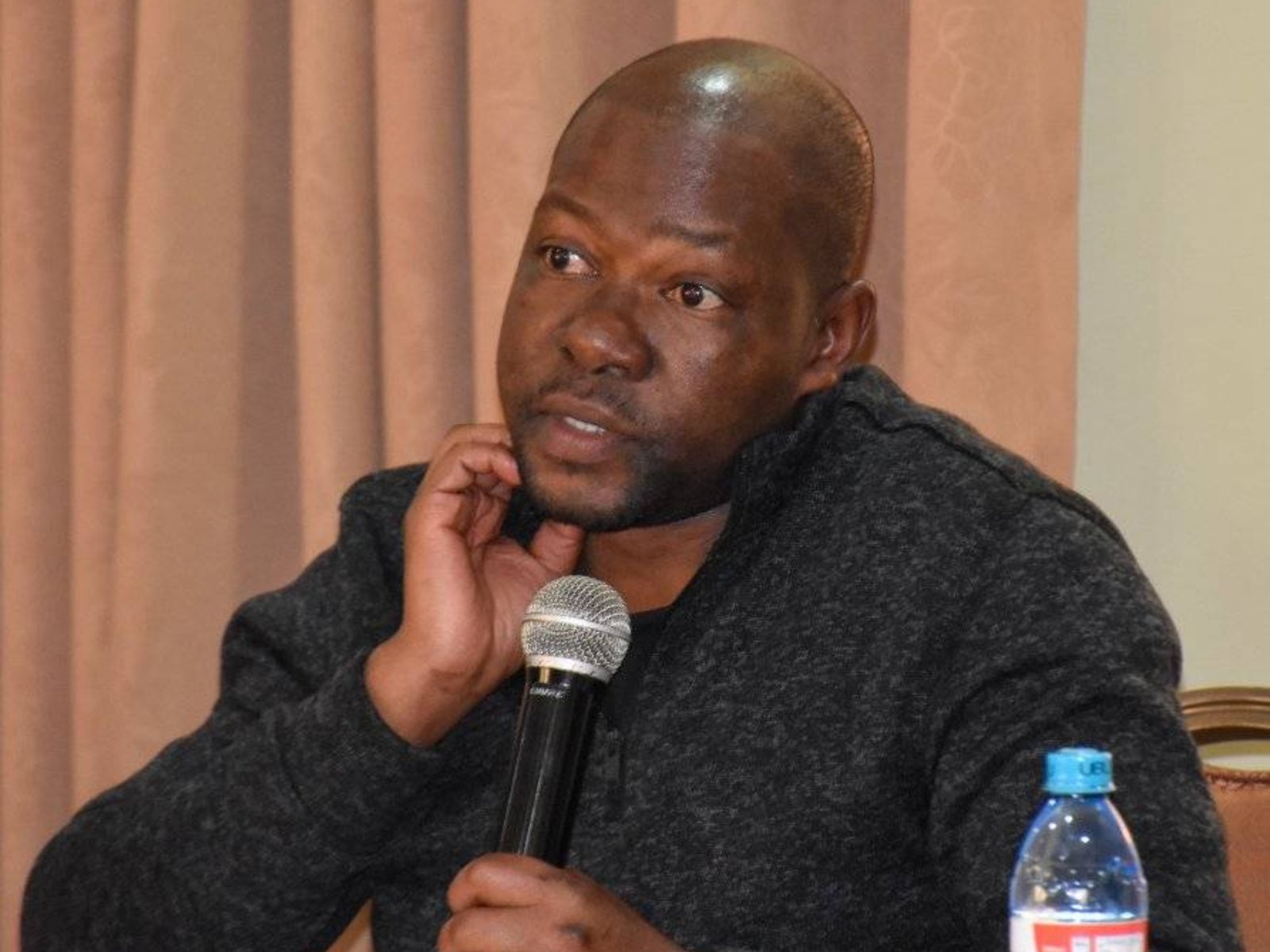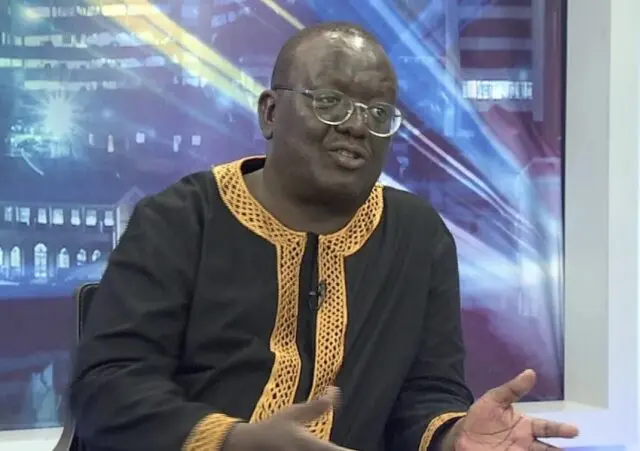Chief Justice Maraga: Decision seeks to end impunity

Mercy Mwai and Anthony Mwangi
A major constitutional crisis was unfolding in the country yesterday after Chief Justice David Maraga advised the President to dissolve Parliament over its failure to enact the contentious two-thirds gender rule.
Besides sending all MPs and senators packing, Maraga’s decision, if implemented by the President, would throw the country into a major constitutional crisis as all the laws enacted by the current Parliament so far would become null and void.
“In these circumstances let us endure pain, if we must, if only to remind ourselves, as a country, that choices and particularly choices on constitutional obligations have consequences.
Let us endure pain if only to remind the electorate to hold their parliamentary representatives accountable.
Let us endure pain if only to remind ourselves that, as a country, being a democracy that has chosen to be governed by the rule of the law we must say No to impunity and hold everyone accountable for their actions or commission,” said Maraga in a statement which sent shockwaves across the country.
“In the results, your Excellency, it is my constitutional duty to advise you, the President of the Republic of Kenya, which I hereby do, to dissolve Parliament in accordance with Article 261(7),” he added.
State House had not commented on Maraga’s advisory by the time we went to press.
The CJ said his decision was intended to say No to impunity and hold everyone accountable for their actions or omissions.
According to him, Article 261 of the Constitution, which had transitional clauses, read together with the Fifth Schedule of the Constitution obliges Parliament to enact legislations required to implement provisions of the Constitution within five years with leave to extend that period once for a further year.
“For over nine years now, Parliament has not enacted the legislation required to implement the two-thirds gender rule, which as the Court of Appeal observed in its said judgment, is clear testimony of Parliament’s lackadaisical attitude and conduct in this matter,” he added.
Maraga further said his decision was informed by the failure by MPs to enact the gender rule despite four court orders being issued and six petitions registered in court.
No doubt
His decision, he said, is also based on the failure by the two House Speakers to advise him on whether Parliament had passed the representation of special Interests Groups Laws (Amendment) Bill 2011 and the Constitution of Kenya (Amendment Bill) 2019 as they had informed him the two were under consideration.
“There is no doubt that the dissolution of Parliament will cause inconveniences and even economic hardships.
The fact that Kenya is in the midst of the coronavirus pandemic only exacerbates the potential impact of the decision.
Yet that is the clear result Kenyans desired for Parliament’s failure to enact legislation they deemed necessary.
We must never forget that more often than not, there is no gain without pain,” he said.
“The carefully designed enforcement mechanism of dissolution of Parliament under Article 261(7) irrespective of its consequences is clearly the radical remedy Kenyans desired to incentivise the political elites to adhere to and fully operationalise the transformational agenda of the Constitution they bequeathed themselves in 2010.”
His statement was fiercely criticised by National Assembly Speaker Justin Muturi, the Clerk Michael Sialai and a number of MPs who claimed Maraga had erred in his decision.
Muturi, in his opinion, defended legislators, saying the high-level criticism levelled against the Parliament is somewhat misplaced due to a variety of reasons.
“It is the State which is a conglomeration of various organs that is empowered to ensure that two-thirds of members of all elective and appointive positions are not of the same gender,” he argued.
Blatant failure
He added that there was no express constitutional edict-requiring Parliament to pass legislation to ensure compliance with the two-thirds gender principle with respect to MPs.
Muturi was categorical that despite the huge attention that has been placed on Parliament, gender parity compliance on the part of the Executive especially the Cabinet, Judiciary, including in the Supreme Court and other key state agencies, has not been met.
“An understanding of the entire law-making process indicates that it is not solely upon Parliament to have a law enacted.
Bills may originate from anywhere including from the public through petitions for presentation in Parliament, subsequently processed through the House and then finally presented to the President for assent,” he said.
Sialai, the Clerk, said there is no valid ruling that has been given to Parliament compelling it to pass the two-thirds gender rule.
It is, therefore, unfair for any person to blame Parliament for the failure to pass the Act yet the obligations to have the law in place lies on the State, he observed.
“It is not conceivable that if you dissolve Parliament, it will cause an unprecedented constitutional crisis, one group’s term is shortened as opposed to others,” he added.
But Kikuyu MP Kimani Ichung’wa and his Mathira counterpart Rigathi Gachagua welcomed Maraga’s decision, saying they were ready for elections.
In his statement, the CJ accused Parliament of blatant failure and refusal to pass the gender rule yet it had all the time to do so.
He said that contrary to the arguments of two House Speakers that he (CJ) had a role to play in dealing with such issues, he was categorical that his role was to ascertain whether Parliament had met its obligations to enact a law as directed by the High Court.
“If any court order has not been complied with, the Chief Justice is permitted only one course of action, to advise the President to dissolve Parliament.
The Constitution donates no discretion to the Chief Justice on the appropriate action to take in the event of non-compliance by Parliament,” he added.
Petitions launched
Maraga stated that “the Speaker’s contention that no order was transmitted to either Parliament or Chief Justice has no basis.
The orders were made in the presence of Parliament’s lawyers and the six petitioners transmitted copies to the Chief Justice.
The argument that the order was directed to the 11th Parliament has also no basis, for the obligation to enact the requisite legislation and order in the petition was directed to Parliament as an institution and not the 11th Parliament.”
He blamed Parliament for his decision, saying despite the Supreme Court under Dr Willy Mutunga extending the timelines and advising the 10th Parliament to enact the law by August 2015, Parliament failed to do so.
The CJ said that despite writing to Muturi and Senate Speaker Ken Lusaka and Attorney General Kihara Kariuki after the petitions were lodged in his office, they did not revert to him on the status of the representation of Special Interests Groups Laws.
Maraga explained that it is against this backdrop that he was compelled to cause summons to be served on Parliament, which saw the two Speakers raising objections on the six petitions before him.










